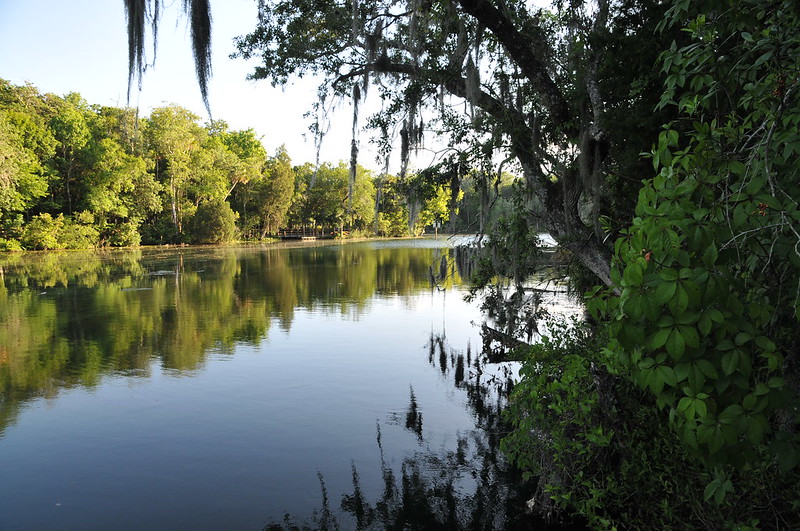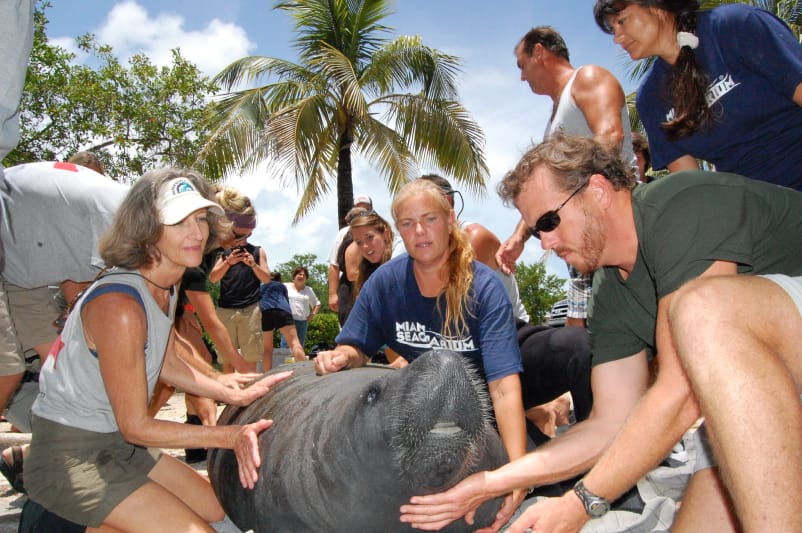
The role and use of spring-fed systems by marine fish species along Florida’s Gulf coast is poorly understood. Are marine fish using the spring-fed river systems as a refuge when coastal water temperatures fall to lethal levels like manatees do? If so, what are the effects on freshwater fish species native to the system? Biologists with the Florida Fish and Wildlife Conservation Commission (FWC) have been working to answer these questions thanks to a grant from the Foundation.
Previous research on four spring-fed river systems with a direct connection to the Gulf of Mexico found that marine fish numbers increased during winter months, while freshwater fish numbers decreased during the same time period. Of the four systems studied, this seasonal shift was most pronounced in the Homosassa River system, leading to its selection for further investigation.
The Homosassa River Project
The Homosassa River Project examines what influences seasonal changes in fish species with acoustic telemetry, electrofishing, mark-recapture, habitat assessment, and water quality assessment. Researchers suspect that marine fish are overwintering in the river, using the space for refuge much like manatees. The data collected suggests that marine fish move from the Gulf of Mexico into the Homosassa River beginning in October, remain throughout the winter months, and return in March. During these months, freshwater species move to the river’s backwater. This migration could cause negative interactions. The project will continue to monitor fish movements through July 2020 to develop a more complete understanding of fish species interactions in the Homosassa River system.
Importance of the Homosassa River Project
The Homosassa River Project uses an ecosystem-based approach to understand the unique dynamics of coastal spring-fed systems. Without studies like this, we could lose an important overwintering habitat that may help increase the range of tropical marine fish in the Gulf of Mexico. A poor understanding of habitat use by freshwater and marine fish can lead to missed conservation and restoration opportunities and a potential decline in freshwater fish populations. Management strategies that result from this study may be adapted to benefit other coastal spring-fed rivers.











